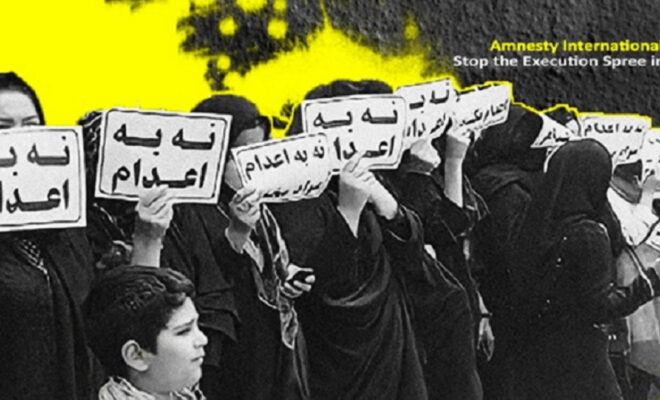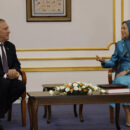Executions in Iran Top 600 in 2023, Highest in 8 Years, Says Group

VOA | 11/3/2023
AFP, PARIS — More than 600 people have been executed by Iran so far this year, already the highest figure in eight years with two months of 2023 to go, a rights group said Friday.
There were nine executions in a single day in a prison outside Tehran this week, while two people face execution after being convicted of adultery, the Norway-based Iran Human Rights (IHR) group said.
IHR and others have accused Iran of using capital punishment to instill fear in the wake of women-led protests that swept the country for several months from September last year.
“The international community must react to more than 600 executions in 10 months — that’s two state murders a day,” said IHR Director Mahmood Amiry-Moghaddam.
“Silence is indirect consent to these crimes,” he added, noting that Iran became chair of the United Nations Human Rights Council Social Forum earlier this week.
Number of executions surges
The IHR’s tally of 604 executions so far this year is already higher than the 582 recorded in 2022, and the most since 2015 when it registered 972 executions.
Activists have expressed dismay over the surge in drug-related executions after previously falling due to amendments in Iran’s criminal code.
Wednesday’s executions involved nine men — among them an Afghan national — who were hanged in Ghezel Hesar Prison in Karaj outside Tehran, mostly on murder charges, IHR said.
Pair sentenced for adultery
Meanwhile, the IHR said a woman and a man — Leila Kholghi Sakachayi and Abolfazl Barat Vakili — had been sentenced to death by a Tehran court in August on adultery charges.
Sex outside marriage is illegal in Iran, although death sentences for adultery have become relatively rare in recent years.
Secret recordings filmed without the woman’s knowledge were used as evidence against both of them, it said.
“The international community shouldn’t tolerate executions being carried out for consensual sex … in the 21st century by a government that has a seat at the United Nations,” said Amiry-Moghaddam.









